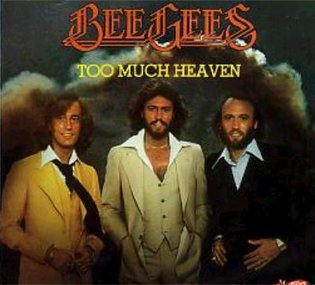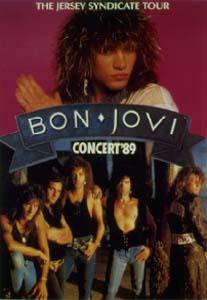
The Bee Gees were a musical group formed in 1958 by brothers Barry, Robin, and Maurice Gibb. The trio were especially successful in popular music in the late 1960s and early 1970s, and later as prominent performers in the disco music era in the mid- to late 1970s. The group sang recognisable three-part tight harmonies: Robin's clear vibrato lead vocals were a hallmark of their earlier hits, while Barry's R&B falsetto became their signature sound during the mid- to late 1970s and 1980s. The group wrote all their own original material, as well as writing and producing several major hits for other artists, and are regarded as one of the most important and influential acts in pop-music history. They have been referred to in the media as The Disco Kings, Britain's First Family of Harmony, and The Kings of Dance Music.

Saturday Night Fever is the soundtrack album from the 1977 film Saturday Night Fever starring John Travolta. The soundtrack was released on November 15, 1977. Prior to the release of Thriller by Michael Jackson, Saturday Night Fever was the best-selling album in music history, and still ranks among the best-selling soundtrack albums worldwide, with sales figures of over 40 million copies.

One Night Only is a live album and DVD/Blu-ray by the Bee Gees. It features the group's concert at the MGM Grand in Las Vegas in 1997 and includes many of their greatest hits.

"Night Fever" is a song written and performed by the Bee Gees. It first appeared on the soundtrack to Saturday Night Fever on RSO Records. Producer Robert Stigwood wanted to call the film Saturday Night, but singer Robin Gibb expressed hesitation at the title. Stigwood liked the title Night Fever but was wary of marketing a movie with that name. The song bounded up the Billboard charts while the Bee Gees’ two previous hits from Saturday Night Fever soundtrack were still in the top ten. The record debuted on the Billboard Hot 100 Chart at #76, then leaped up 44 positions to #32. It then moved: 32–17–8–5–2–1. It remained at #1 for eight weeks, and ultimately spent 13 weeks in the top 10. For the first five weeks that "Night Fever" was at #1, "Stayin' Alive" was at #2. Also, for one week in March, Bee Gees related songs held five of the top positions on the Hot 100 chart, and more impressively, four of the top five positions, with "Night Fever" at the top of the list. The B-side of "Night Fever" was a live version of "Down the Road" taken from the Bee Gees 1977 album, Here at Last... Bee Gees... Live.

"Stayin' Alive" is a song written and performed by the Bee Gees from the Saturday Night Fever motion picture soundtrack. The song was released in 1977 as the second single from the Saturday Night Fever soundtrack. The band co-produced the song with Albhy Galuten and Karl Richardson. It is one of the Bee Gees' signature songs. In 2004, "Stayin' Alive" was placed at No. 189 on the list of Rolling Stone's 500 Greatest Songs of All Time. The 2021 updated Rolling Stone list of 500 Greatest Songs placed "Stayin' Alive" at No. 99. In 2004, it ranked No. 9 on AFI's 100 Years...100 Songs survey of top tunes in American cinema. In a UK television poll on ITV in December 2011 it was voted fifth in "The Nation's Favourite Bee Gees Song".

"Jive Talkin' " is a song by the Bee Gees, released as a single in May 1975 by RSO Records. This was the lead single from the album Main Course and hit number one on the Billboard Hot 100; it also reached the top-five on the UK Singles Chart in the middle of 1975. Largely recognised as the group's "comeback" song, it was their first US top-10 hit since "How Can You Mend a Broken Heart" (1971).

"Too Much Heaven" is a song by the Bee Gees, which was the band's contribution to the "Music for UNICEF" fund. They performed it at the Music for UNICEF Concert on 9 January 1979. The song later found its way to the group's thirteenth original album, Spirits Having Flown. It hit No. 1 in both the US and Canada. In the United States, the song was the first single out of three from the album to interrupt a song's stay at #1. "Too Much Heaven" knocked "Le Freak" off the top spot for two weeks before "Le Freak" returned to #1 again. "Too Much Heaven" also rose to the top three in the UK. In the US, it would become the fourth of six consecutive No. 1s, equalling the record set by Bing Crosby, Elvis Presley, and the Beatles for the most consecutive No. 1 songs. The six Bee Gee songs are "How Deep Is Your Love", "Stayin' Alive", "Night Fever", "Too Much Heaven", "Tragedy" and "Love You Inside Out". The songs spanned the years of 1977, 1978 and 1979.

"Chiquitita" is a song recorded by Swedish pop group ABBA. It was released in January 1979 as the first single from Voulez-Vous (1979), the group's sixth album. Agnetha Fältskog performs the lead vocals. Originally, the track "If It Wasn't for the Nights" was going to be the album's lead single, but after "Chiquitita" was completed these plans were abandoned, and it remained an album track.

Spirits Having Flown is the fifteenth album released by the Bee Gees. It was the group's first album after their collaboration on the Saturday Night Fever soundtrack. The album's first three tracks were released as singles and all reached No. 1 in the US, giving the Bee Gees an unbroken run of six US chart-toppers in a one-year period and equaling a feat shared by Bing Crosby, Elvis Presley, and The Beatles. It was the first Bee Gees album to make the UK top 40 in ten years, as well as being their first and only UK No. 1 album. Spirits Having Flown also topped the charts in Australia, Canada, Germany, New Zealand, Sweden and the US. The album has sold more than 30 million copies worldwide, making it one of the best-selling albums of all time.

"Tragedy" is a song released by the Bee Gees, written by Barry, Robin & Maurice Gibb, included on their 1979 album Spirits Having Flown. The single reached number one in the UK in February 1979 and repeated the feat the following month on the US Billboard Hot 100. In 1998, it was successfully covered by British pop group Steps, whose version also reached number one in the UK.

"Love You Inside Out" is a 1979 hit single by the Bee Gees from their album, Spirits Having Flown. It was their last chart-topping on the Billboard Hot 100, interrupting Donna Summer's "Hot Stuff", becoming the third single from the album to do so. In the UK, the single peaked at No. 13 for two weeks. It was the ninth and final number-one hit for the Bee Gees in the US, and the twelfth and final number-one hit in Canada as well. The trio would not return to the top 10 for ten years, with the song, "One".

A New Day... was the first concert residency performed by Canadian singer Celine Dion in The Colosseum at Caesars Palace in Las Vegas, Nevada, United States. It was created and directed by Franco Dragone to support her seventh English-language and eighteenth studio album A New Day Has Come (2002). The show premiered on 25 March 2003 and ended on 15 December 2007.

Break Every Rule World Tour is the sixth concert tour by singer Tina Turner. The tour supported her sixth solo album Break Every Rule (1986). It was sponsored by Pepsi-Cola and broke box office records in 13 different countries: United Kingdom, Germany, Netherlands, Switzerland, Belgium, Norway, Sweden, Spain, Italy, Austria, France, Ireland and Denmark. It was the third highest-grossing tour by a female artist in North America in 1987 and the highest-grossing female tour of the 1980s with a total of $11.3 million . Her show in Rio de Janeiro remains the largest paying concert audience by a female artist with 180,000 spectators.

The Jersey Syndicate Tour was the fourth concert tour by American band Bon Jovi, that ran from 1988 to 1990. The massive, highly successful world tour was put on in support of the band's fourth studio album New Jersey (1988).
The Dynasty Tour was a concert tour by the rock band Kiss.
The Even Now Tour is the fourth concert tour by American recording artist Barry Manilow. The tour supports his fifth studio album Even Now (1978). Beginning in the summer of 1978, Manilow performed over 60 shows in North America and, marks the first time the singer performed in Europe.
The Heat is a co-headlining concert tour by American recording artists Anita Baker and Luther Vandross. The tour primarily played over 50 shows in the United States during the fall and winter of 1988. Shows in New York City, Los Angeles and Rosemont were instant sellouts.
The 1967–68 Tours are a series of concerts held in 1967 and 1968 by English band, the Bee Gees. The tours promoted their third, fourth and fifth studio albums: Bee Gees' 1st (1967), Horizontal (1968) and Idea (1968). The band's line-up at that time was the Gibb brothers with Colin Petersen and Vince Melouney. Before the tours began, the group were the opening act for Fats Domino in London and Manchester.
The Evolution Tour was a concert tour by the American rock band Journey. The tour was in support of their 1979 album Evolution which peaked at #20 on the Billboard 200 like the previous album Infinity.
The Hemispheres Tour was a concert tour by Canadian rock band Rush in support of their sixth studio album, Hemispheres.














